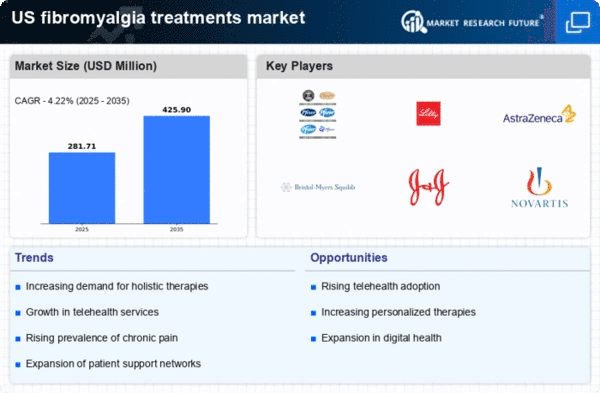The US Fibromyalgia Treatments Market showcases a diverse and competitive landscape driven by a growing awareness of the condition and an increasing demand for effective therapies. As fibromyalgia is a complex chronic pain disorder, the treatment options available reflect advances in medical science along with a deep understanding of patient needs. Numerous pharmaceutical firms are actively engaged in the development and marketing of medications aimed at alleviating the symptoms of fibromyalgia, establishing a dynamic competition among companies.
Key players are leveraging their research and development capabilities, focusing on innovative drug formulations, and employing strategic marketing initiatives to capture a larger share of this expanding market. Furthermore, the regulatory environment plays a significant role in shaping competitive strategies, as companies must navigate FDA approvals and ongoing safety assessments to bring new treatments to market.
Teva Pharmaceutical Industries holds a prominent position within the US Fibromyalgia Treatments Market due to its extensive portfolio of pain management therapies and a robust distribution network. The company has established its presence through well-received products that have gained traction among healthcare providers and patients alike. Teva's strength lies in its commitment to research and development, allowing it to introduce innovative solutions that address the multifaceted nature of fibromyalgia. The company's focus on affordability and accessibility has made its treatments widely available to patients, further enhancing its competitive standing in the market.
Notably, Teva's ongoing efforts to optimize its product offerings and maintain high-quality standards contribute significantly to its reputation and customer loyalty in the fibromyalgia treatment realm.
Novartis also plays a critical role in the US Fibromyalgia Treatments Market, characterized by its extensive research capabilities and portfolio of prescription medications designed to relieve chronic pain. The company has successfully leveraged its expertise in pharmacology to develop effective treatments that meet evolving patient needs. Novartis has positioned itself strategically in the US market through agreements for key products that address various aspects of fibromyalgia. The company's commitment to innovation is reflected in its investment in clinical trials to explore new treatment options, alongside strategic mergers and acquisitions that enhance its market presence and broaden its therapeutic offerings.
Novartis strengthens its competitive edge through its established collaborations with healthcare professionals and research institutions, ensuring that its products not only reach the target audience effectively but also remain at the forefront of treatment advancements in the fibromyalgia landscape.






















